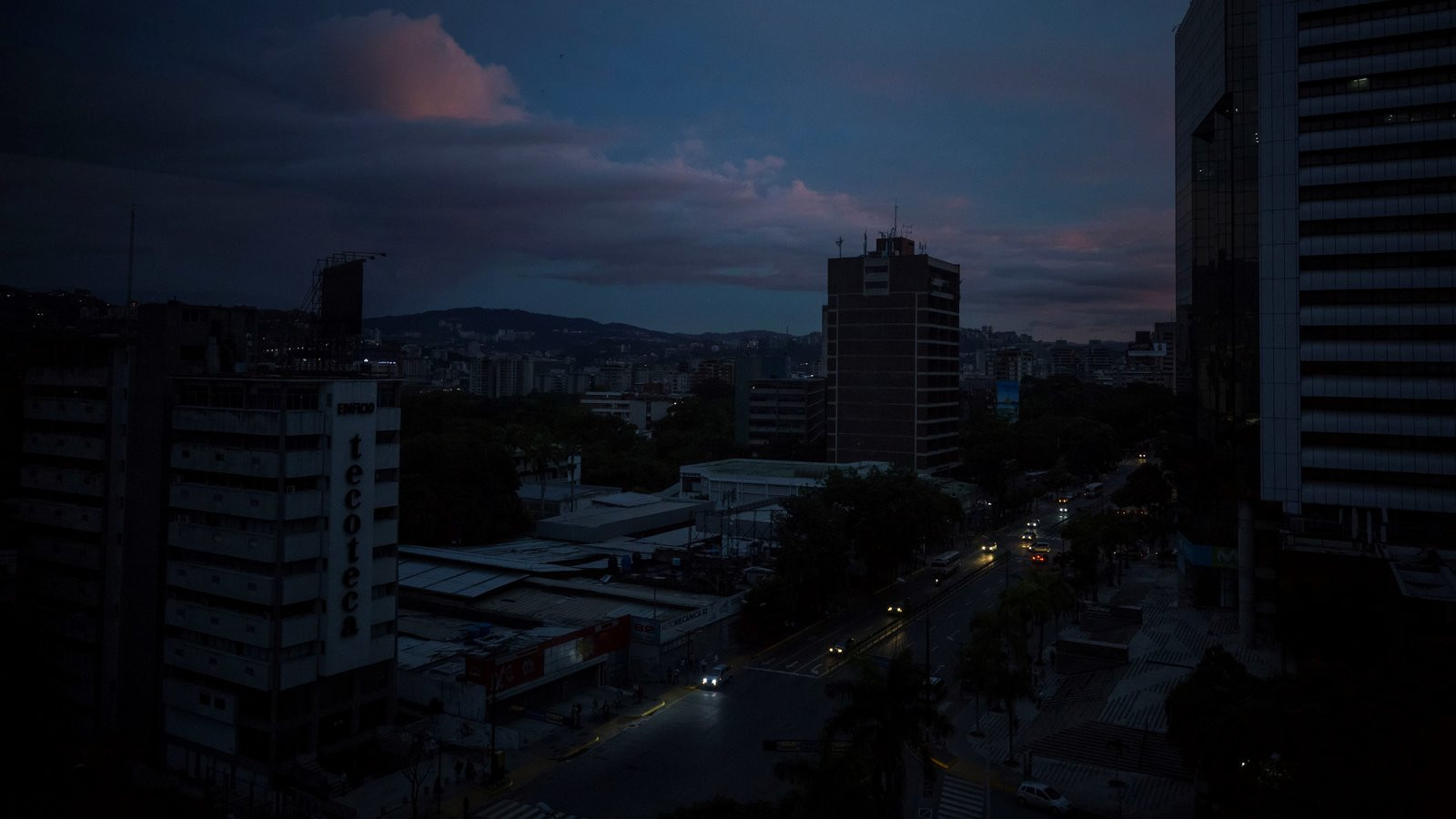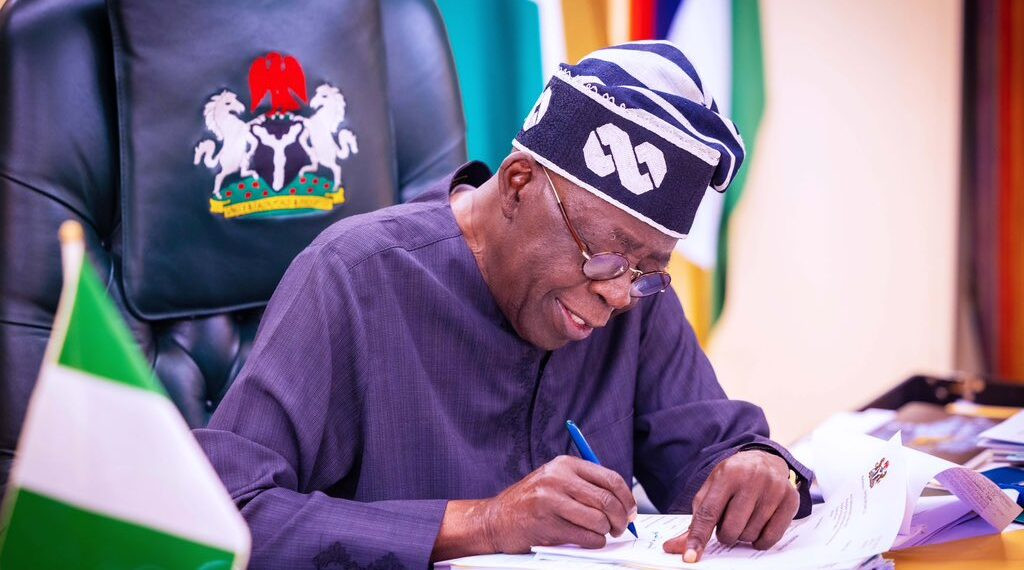Venezuelans awoke on Friday to a major power outage in the capital, Caracas, and several states, plunging the country into darkness. President Nicolas Maduro’s government blamed the outage, which began about 4:50 a.m., on “electrical sabotage.”
The blackout, which affected all 24 of Venezuela’s states, according to Venezuelan Communications Minister Freddy Ñáñez, caused widespread disruptions across the country. The capital’s metro system was shut down, leaving tens of thousands of commuters stranded, and businesses shuttered their doors, relying on backup generators. Hospitals were forced to operate on emergency power, and cellphone service was spotty at best.
Maduro, in a Friday evening appearance on state TV, thanked Venezuelans for their patience after a chaotic day. He acknowledged the inconvenience caused by the outage but insisted that the government was working to restore power as quickly as possible.
Maduro, in a Friday evening appearance on state TV, thanked Venezuelans for their patience after a chaotic day. He acknowledged the inconvenience caused by the outage but insisted that the government was working to restore power as quickly as possible.
Maduro, in a Friday evening appearance on state TV, thanked Venezuelans for their patience after a chaotic day. He acknowledged the inconvenience caused by the outage but insisted that the government was working to restore power as quickly as possible.
The blackout comes amid a weeks-long power struggle, with the opposition’s Edmundo González claiming an overwhelming victory over Maduro, who the electoral authority declared reelected for a third consecutive term in a July vote. The opposition claims that the election was rigged and that González was the true winner.
Maduro Blames Opposition
Maduro has accused the opposition of sabotaging the country’s electric grid, a claim that the opposition denies. In a social media post, Maduro denounced the “criminal attack” against the electric system and pointed the finger at “desperate fascist” sectors. He called on the population to remain calm.
Freddy Ñáñez, the communications minister, wrote in a message shared with journalists on Telegram that the blackout was a “desperate” attempt by Maduro’s opponents to violently oust the president. He characterized the outage as a “desperate” attempt by Maduro’s opponents to violently oust the president.
A History of Blackouts
Venezuela has a history of power outages, many of which have been blamed on the country’s aging infrastructure and lack of investment in its power grid. In 2019, the country suffered a massive blackout that lasted for nearly a week, leaving millions of people without power. The government blamed the blackout on a cyber attack, but energy experts said it was likely the result of poor maintenance of the country’s hydroelectric infrastructure.
The government has also been accused of using power outages as a political weapon, deliberately cutting off power to areas that are critical to the opposition. For example, in 2019, the government cut off power to the state of Zulia, a stronghold of the opposition, for several days.
The Power Struggle
The power struggle between Maduro and the opposition has intensified in recent months. The opposition has been calling for Maduro to step down, and the government has been cracking down on dissent. The blackout is a clear sign of the deep divisions in Venezuela and the fragility of the country’s political system.
The Future of Venezuela’s Power Grid
The future of Venezuela’s power grid is uncertain. The country needs to invest heavily in its infrastructure to address the problem of blackouts, but it is unclear if the government has the resources or the will to do so. The opposition has also been calling for a transition to renewable energy sources, but the government has been slow to embrace this idea.
A Call for Calm
As Venezuelans continue to grapple with the effects of the blackout, many are calling for calm and a peaceful resolution to the country’s political crisis. The blackout has shown the fragility of Venezuela’s political system, and the need for a peaceful and democratic solution to the country’s problems.
The Aftermath
By nightfall, power had been restored in many parts of the capital after a day of sporadic outages. However, much of the country remained without power as the metro remained out of service and lines formed outside of fuel stations as Venezuelans braced for the worst. The outage was the latest in a series of blackouts that have plagued the country in recent years.
The blackouts are a symptom of a deeper problem, which is the country’s struggling economy. The country’s oil industry, which once provided the majority of the country’s revenue, has been hit hard by years of mismanagement, corruption, and sanctions. This has led to a shortage of foreign currency, which has made it difficult for the government to import goods, including essential goods like medicine and food.
The blackouts are also a sign of the government’s inability to provide basic services to its citizens. The government has been accused of prioritizing its own needs over the needs of its people. This has led to widespread dissatisfaction with the government, and has contributed to the country’s current political crisis.
A Call for Change
The blackout is a wake-up call for Venezuela. The country needs to address its economic problems and improve its infrastructure if it wants to prevent future blackouts. The government also needs to listen to the concerns of its people and address the country’s deep political divisions.
The blackout is a reminder that Venezuela is a country in crisis. The country needs to find a way to unite and work together to solve its problems. The future of Venezuela depends on it.

















